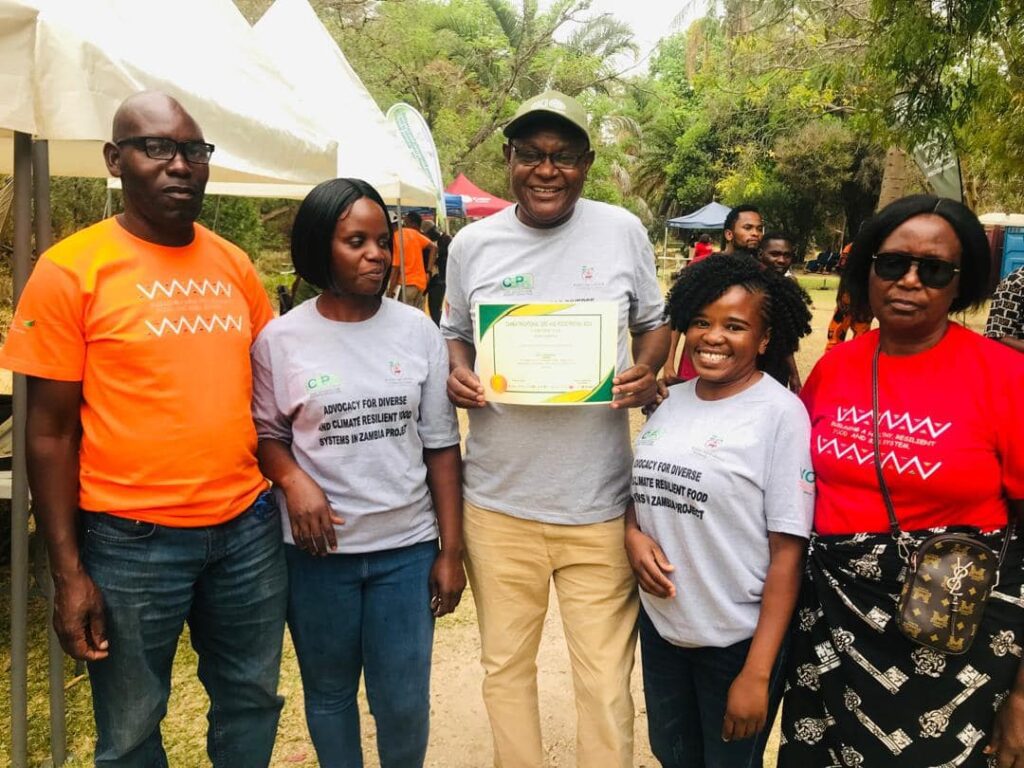
Hundreds of people flocked the Zambia Food and Seed Festival 2024 that took place from the 11th to 12th October at the Munda Wanga Botanical Gardens in Lusaka. The event running under the theme “Building a Healthy, Resilient Food and Seed System,” brought together farmers, policymakers, agribusinesses, scientists, and the general public to explore innovative solutions to address food insecurity, climate change in Zambia.
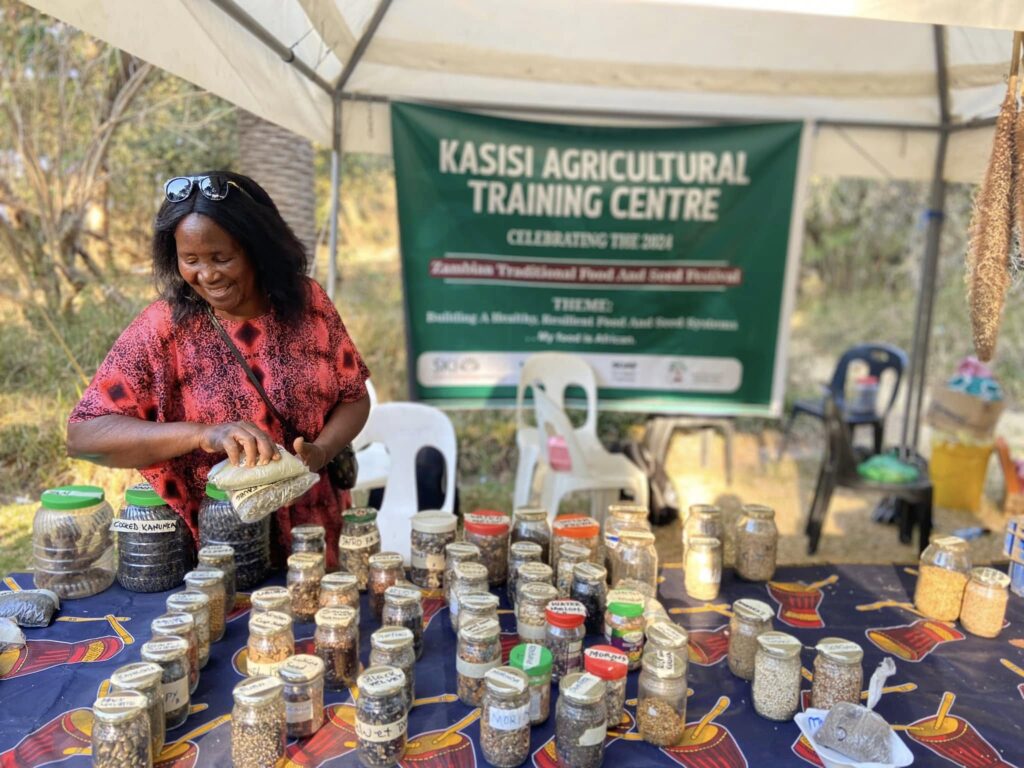
Why the Focus on Seed?
Seeds are the foundation of agriculture, and the festival underscores their importance in both food security and environmental resilience. By investing in the development and preservation of locally adapted and drought-resistant seeds, Zambia can mitigate the impacts of climate change on its agricultural output. With the changing climate patterns, it has become crucial to promote the use of seeds that can thrive in varying conditions, ensuring that Zambia’s farmers are equipped to deal with unpredictable weather patterns. Additionally, many small-scale farmers in Zambia rely on traditional seeds, and there is a strong push to preserve indigenous seed varieties, which have developed over centuries and are well-suited to the local climate.
Key Objectives
The festival seeks to achieve several key objectives:
- Promoting Agricultural Sustainability: The event aims to highlight the importance of sustainable farming practices that can withstand environmental changes and contribute to long-term food security in Zambia.
- Enhancing Seed Systems: One of the festival’s primary focuses will be on the development and conservation of indigenous and resilient seed varieties. The role of quality seeds in ensuring crop resilience, increasing productivity, and improving food diversity will be a central theme.
- Raising Awareness on Food Security: The festival will focus on the significance of local food systems and how they can be strengthened to ensure a consistent and nutritious food supply for communities across the country.
- Building Partnerships for Change: The festival provides an opportunity for various stakeholders, including government bodies, NGOs, farmers’ organizations, and the private sector, to come together, share knowledge, and forge partnerships aimed at improving the nation’s food systems.
Key Themes and Activities at the Festival
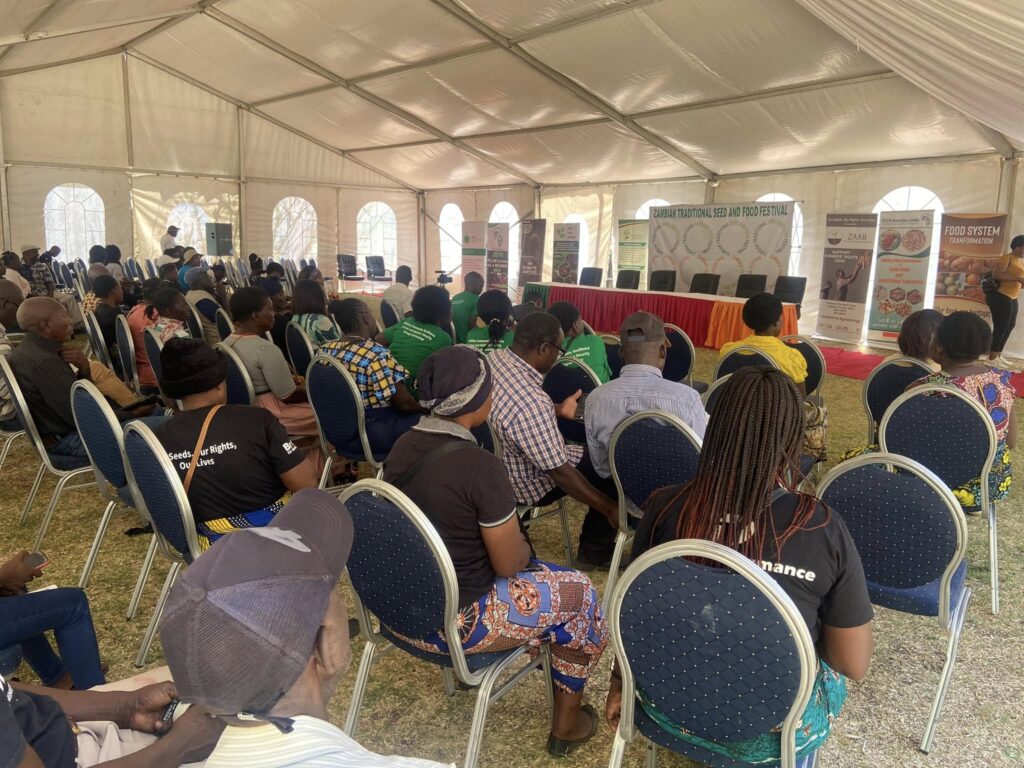
Farmers Dialogue: Farmers had an opportunity to sit with experts and cover a wide range of topics, from sustainable farming techniques, agroecology, and organic farming to seed-saving practices, pest management, and post-harvest handling. Practical skills that farmers can implement.
Seed Exchange : With many related organisations taking part , The festival also featured seed exchange , encouraging farmers to swap indigenous seeds and share best practices for cultivation and preservation. These exchanges foster community-based seed systems that reduce dependency on external seed suppliers and promote genetic diversity.
Food Exhibitions: The event showcased a variety of locally produced foods, demonstrating the diversity and richness of Zambia’s agricultural products. Visitors had the opportunity to taste and purchase organic and locally grown foods that support the country’s food security.
Innovative Solutions for Climate Resilience: Given the growing impact of climate change on agriculture, the festival also highlighted innovative technologies and solutions designed to help farmers adapt. This includes the use of climate-smart agriculture practices, drought-resistant crops, and water management techniques that help mitigate the impacts of erratic rainfall.
Policy Discussions and Advocacy: The festival also hosted a series of discussions and panels involving key policymakers, industry leaders, and experts. These sessions focused on developing supportive policies for agriculture, seed preservation, and food security in Zambia. The advocacy efforts aim to encourage the government to adopt policies that ensure sustainable farming practices are incentivized and integrated into national strategies.
Impact on Zambia’s Agricultural Sector
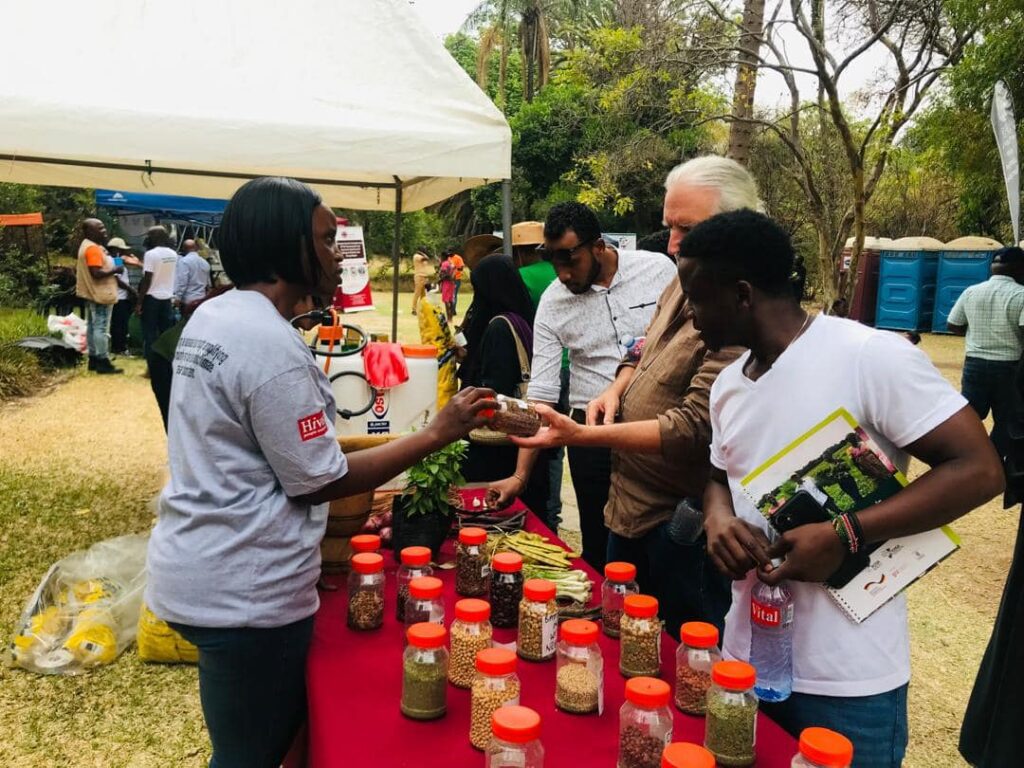
Zambia, like many African countries, faces significant challenges related to food insecurity, limited access to quality seeds, and the adverse effects of climate change on farming systems. However, by addressing these issues through initiatives like the Zambia Food and Seed Festival, there is a clear path towards building a healthier and more resilient food system. The festival offers a platform for local farmers to share their experiences, learn new techniques, and adopt practices that can increase productivity and improve food quality.
Furthermore, the promotion of resilient seed systems will help reduce dependency on imported seeds, thus enhancing Zambia’s agricultural sovereignty. The collaborative nature of the event also offers opportunities for the private sector and government agencies to develop policies and programs that support the long-term growth of the country’s food system.
The Zambia Food and Seed Festival 2024 is a vital platform for fostering collaboration and innovation in the agricultural sector. By building a healthy, resilient food and seed system, the festival is paving the way for a more sustainable, climate-resilient, and food-secure future for Zambia. As the world grapples with climate change, rising food prices, and the need for sustainable agricultural practices, events like these play a crucial role in ensuring that Zambia is at the forefront of finding solutions to these challenges.
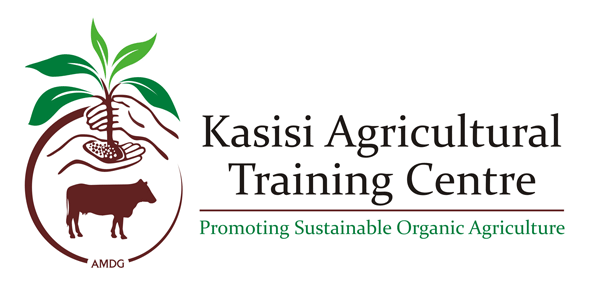
Recent Comments